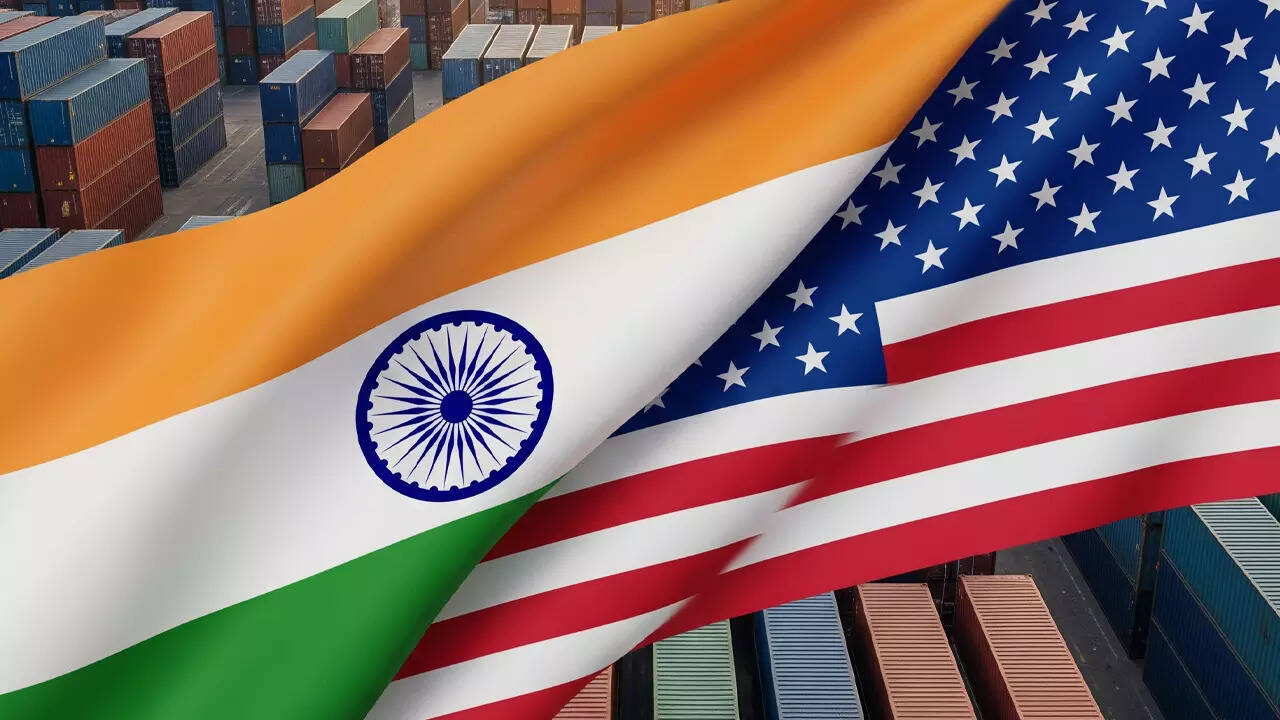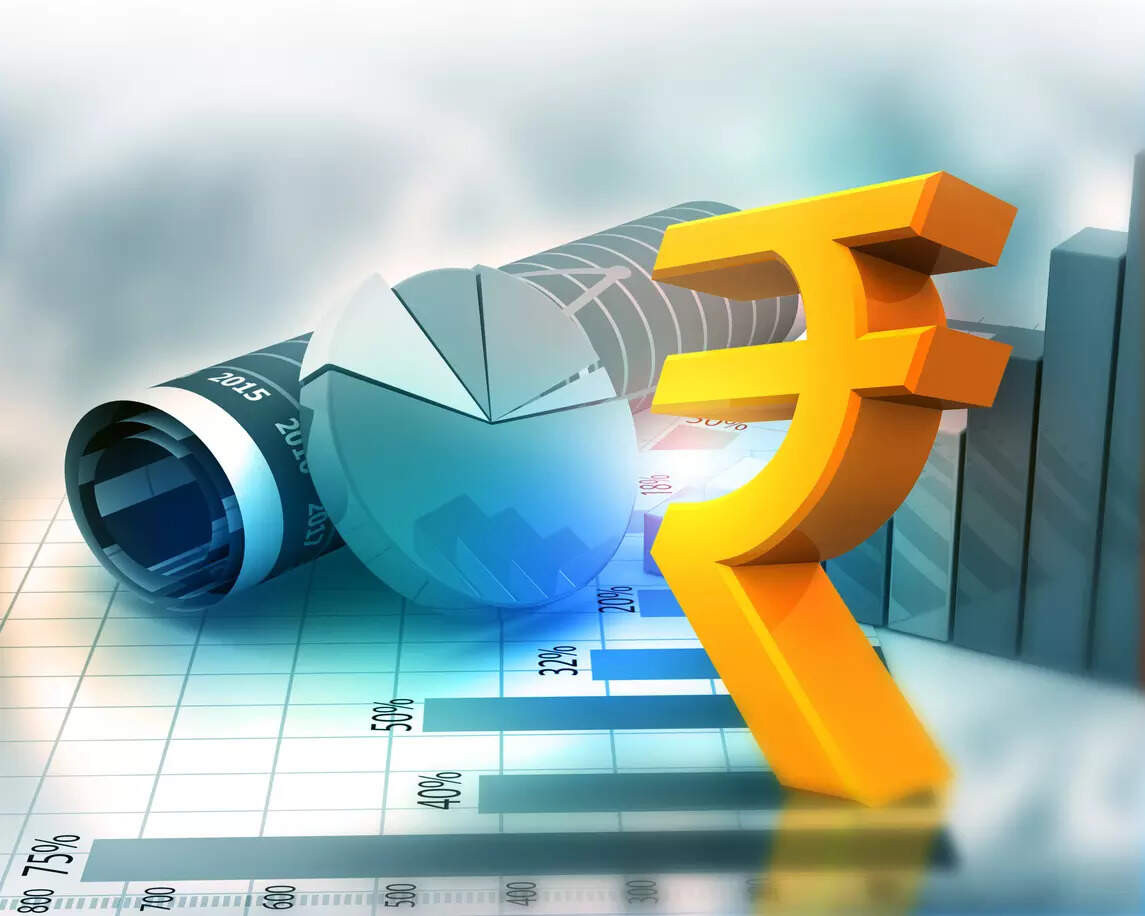Stock market today: Nifty50 and BSE Sensex, the Indian equity benchmark indices, opened flat in trade on Thursday. While Nifty50 was near 25,475, BSE Sensex was above 83,550.
Navigating the Market Maze: Are Trump’s Trade Winds a Boon or a Bust for Indian Stocks?
Dalal Street had its eyes glued to screens yesterday, and for good reason. The global economic stage is shifting again, with former (and now current) US President Donald Trump announcing a new set of tariffs. The immediate question on everyone’s mind: how will this impact Indian equities? The markets, never ones to shy away from a dramatic entrance, offered a mixed bag of signals.
The Nifty 50 and the BSE Sensex danced a delicate jig, showing initial dips before attempting a recovery. Volatility reigned supreme, fueled by uncertainty surrounding the specifics of Trump’s trade policies and their potential ramifications for India-US trade relations. It’s a high-stakes game of wait-and-see, with investors parsing every utterance from Washington for clues about the future.
But let’s unpack this a little. What exactly is causing this market seesaw, and what should Indian investors be keeping an eye on?
The Trump Tariff Tango: A Double-Edged Sword?
Trump’s renewed focus on tariffs is sending ripples through global markets. While the details are still emerging, the broad stroke is clear: a push to protect American industries by making imports more expensive. This has the potential to disrupt existing trade flows and force companies to rethink their supply chains.

For India, the impact is nuanced. On one hand, tariffs on goods from other countries could make Indian exports more competitive in the US market. Sectors like pharmaceuticals, textiles, and certain engineering goods could potentially see a boost in demand. This presents a golden opportunity for Indian businesses to increase their market share and bolster their bottom lines. You can read more about identifying robust investment opportunities here.
However, there’s a significant downside. Increased trade barriers could also hurt Indian companies that rely on exporting goods or services to the US. The IT sector, a major engine of the Indian economy, could face headwinds if American companies are pressured to prioritize domestic solutions. Moreover, a global trade war sparked by Trump’s policies could dampen overall economic growth, negatively impacting demand for Indian goods and services across the board.
Deciphering Dalal Street’s Reaction
Yesterday’s market activity reflects this inherent uncertainty. The initial sell-off was likely triggered by fears of reduced exports and slower economic growth. However, the subsequent recovery suggests that investors are also recognizing the potential benefits of a shifting global trade landscape. The “buy the dip” mentality, fueled by the prospect of certain sectors benefiting from the tariffs, seemed to be at play.
The performance of specific sectors offers a clearer picture. Export-oriented industries that could directly benefit from the tariffs showed resilience, while those heavily reliant on the US market faced selling pressure. This highlights the importance of sector-specific analysis in navigating the current market environment. Investors need to carefully assess the exposure of their portfolio companies to the US market and the potential impact of the new tariffs on their competitiveness.
India-US Trade Deal: Still on the Table?
The elephant in the room is the prospect of a comprehensive India-US trade deal. Negotiations have been ongoing for years, with both sides seeking to address long-standing trade barriers and promote closer economic cooperation. Trump’s protectionist stance could either derail these efforts or, paradoxically, provide the impetus for a quicker agreement.
If a trade deal were to materialize, it could significantly mitigate the negative impact of the tariffs and unlock new opportunities for Indian businesses in the US market. A deal could address issues such as tariff reductions, regulatory harmonization, and improved market access for Indian goods and services. This is a crucial development to watch closely.
Navigating the Uncertainty: A Cautious Approach
So, what’s the takeaway for Indian investors? The current market environment demands caution and a well-thought-out investment strategy. Diversification is key to mitigating risk, and a focus on companies with strong fundamentals and a proven track record is essential. Don’t get caught up in the short-term market fluctuations; instead, focus on the long-term prospects of your investments. Pay close attention to how companies are adapting to the evolving global trade dynamics and reassess your portfolio periodically.
The Indian stock market is proving resilient amid global changes. While the future remains uncertain, a measured approach, coupled with careful analysis, will help investors navigate the market maze and capitalize on emerging opportunities.







